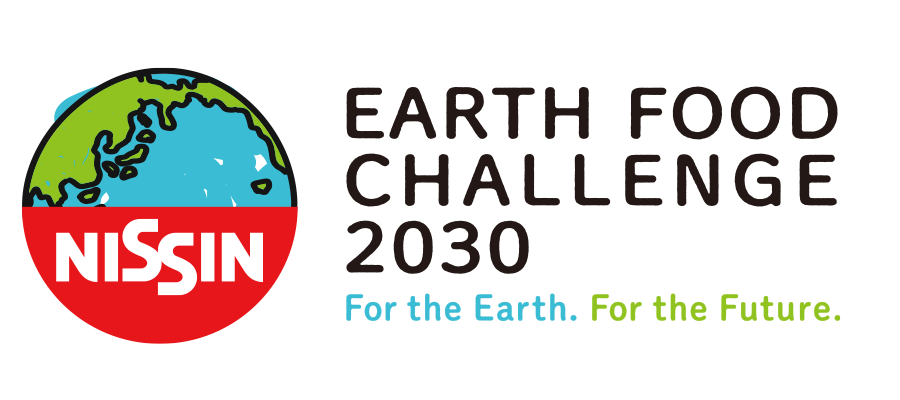

Progress Report on
Mid- to Long-Term
Growth Strategy 2030
FY 3/2023 Results
Promoting Business Growth & Reducing CO2 Emissions
The NISSIN FOODS Group stands behind its environmental strategy, titled "EARTH FOOD CHALLENGE 2030," setting sights on 2030 goals. As of 2022, we've managed to dip below the CO2 emissions benchmark set in 2018 for our emissions, categorized as Scope 1 and Scope 2. Emissions along the supply chain, tagged as Scope 3, also began a downward trend in 2021 and have been reduced to near baseline levels in 2022.

Earth Material Challenge
-Challenge to- Effectively Use Resources
Sustainable Palm Oil Procurement Ratio
2022 Results
37.7%
2030 Targets
100%
Overall Water Use
2022 Results
10.5m3/million yen of sales
2030 Targets
12.3m3/million yen of sales
Logistics Waste Reduction Rates
2021 Results
-47.1%
2030 Targets
-50%
Green Food Challenge
-Challenge to- Address Climate Change
CO2 Emissions Reduction (Scope 1 + 2)
(vs. 2018)
2022 Results
-4.0%
2030 Targets
-30%
CO2 Emissions Reduction (Scope 3)
(vs. 2018)
2022 Results
+0.4%
2030 Targets
-15%
Upward Revisioning of Carbon Neutrality Goals
The Internal Carbon Pricing system will further serve to accelerate our initiatives.
In alignment with the global aspiration to cap global temperature rise below 1.5°C, our Group has revised its 2030 targets upward in order to achieve carbon neutrality. This adjustment sees our emissions for Scope 1 and Scope 2 dive from a 30% reduction relative to 2018 to a 42% reduction compared to 2020. Similarly, Scope 3 takes a leap from a 15% cut against 2018 to a 25% curtailment versus 2020. At the same time, we have introduced an internal carbon pricing system to assign a value to our own CO2 emissions and apply it to our business strategy to accelerate our efforts to achieve new goals.
Upward Revisioning of CO2 Reduction Goals for 2030
Scope1+2
vs. 2018 30%
vs. 2020 42%

Scope3
vs. 2018 15%
vs. 2020 25%

Implementing Internal Carbon Pricing
21,600JPY/t-CO2
